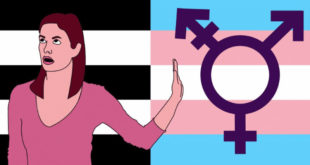Maybe it was Kill Haole Day?
The way The Guardian reports on this is a lot more interesting than the case itself.
In a case that reflects Hawaii’s nuanced and complicated relationship with race, two Native Hawaiian men are scheduled to be sentenced on Thursday for a federal hate crime in the brutal beating of a white man who tried to move into their remote traditional fishing village.
A jury convicted Kaulana Alo-Kaonohi and Levi Aki Jr in November, finding that they were motivated by Christopher Kunzelman’s race when they punched, kicked and used a shovel to beat him in 2014. His injuries included a concussion, two broken ribs and head trauma.
Local lawyers believe this is the first time the US has prosecuted Native Hawaiians for hate crimes. The unique case highlights the struggles between Native Hawaiians who are adamant about not having their culture erased and people who move to Hawaii without knowing or considering its history and racial dynamics.
Would they ever say this about white people reacting to endless hordes of non-whites coming into white countries?
Tensions began over a dilapidated oceanfront home in Kahakuloa, a small village off a narrow road of hairpin turns and sweeping ocean views at the end of a valley on Maui, an island known for luxurious resorts.
“It was obviously a hate crime from the very beginning,” Kunzelman’s wife, Lori, said. “The whole time they’re saying things like, ‘You have the wrong skin color. No “haole” is ever going to live in our neighborhood.’”
“Haole”, a Hawaiian word with meanings that include foreigner and white person, is central to the case. It’s a word often misunderstood by people who don’t comprehend Hawaii’s history of US colonization and the 1893 overthrow of the Hawaiian Kingdom by a group of US businessmen, said Judy Rohrer, author of the book Haoles in Hawai’i.
White people who move to Hawaii are unaccustomed to being identified racially and are “not used to thinking about whiteness”, said Rohrer, who grew up white in Hawaii and is now a professor at Eastern Washington University. “We’re used to being in the majority and then we get to Hawaii and all of a sudden we’re not in the majority, and that makes us uncomfortable.”
Of Hawaii’s 1.5 million residents, about 38% are Asian, 26% are white, 2% are Black and many people are multiple ethnicities, according to US census figures. Native Hawaiians account for about 20% of the population.
But it’s more than racial, Rohrer said, explaining how the Hawaiian word has become part of Hawaii Pidgin, the creole language of the islands, to describe behavior or attitudes not in sync with local culture.
“Acting haole” means “acting out of entitlement, and like you own the place”, she said.
Yeah, I mean. Americans do act like that in every foreign country they travel to, and I could see it being even worse in Hawaii, which is technically a part of America.
In video recorded by cameras on Kunzelman’s vehicle parked under the house, only one racial utterance can be heard, defense attorneys said. Aki is heard saying: “You’s a haole, eh.”
Kunzelman testified that what’s not audible in the video is the men calling him “haole” in a derogatory way.
After the assault, Aki referred to Kunzelman to police as a “rich haole guy”, a “dumb haole” and a “typical haole thinking he owning everything … trying to change things up in Kahakuloa”, prosecutors said.
On some level, I’m actually beginning to feel sympathy for the assaulters. It’s pretty reasonable not to want foreigners coming in and changing your town. We’ve all experienced this.
What’s more, Kunzelman is almost certainly a Jewish name, so it’s likely the changes were offensive (it’s also likely the only reason hate charges were brought against nonwhites).
Tiare Lawrence, a Native Hawaiian community advocate on Maui, said she doesn’t condone the attack but is deeply familiar with the tensions that permeate the case.
“The threat of outsiders coming in … brings a lot of sadness for Hawaiians who are trying so hard to hold on to what little piece of paradise we have left,” she said. As an example, she cited efforts to revitalize the Hawaiian language after it was banned in schools in the wake of the overthrow.
Attorneys for Aki and Alo-Kaonohi say it wasn’t Kunzelman’s race that provoked them, but his entitled and disrespectful attitude.
Yeah, I mean… what was he doing moving into a native village in the first place?
The Mexicans and Somalians and all these other people do it to us because the federal government is paying them to.
Most likely, he was Jewish and saw “business opportunities,” I would think.
Let’s see what The Guardian has to say about that.
Kunzelman came to the village saying he wanted to help residents improve their homes and boost property values, without considering that higher property values come with higher property taxes in a state with the highest cost of living, the defense attorneys said. But the tipping point came when Kunzelman cut locks to village gates, they said.
Kunzelman testified he did so because residents were locking him in and out. He testified that he wanted to provide the village with better locks and distribute keys to residents.
In a letter to the judge, Aki said he doesn’t see himself as racist: “Not only because I am almost half-Caucasian but also because I have people who I love and care about who are white.”
Both men were prosecuted in state court for the assault. Alo-Kaonohi pleaded no contest to felony assault and was sentenced to probation, while Aki pleaded no contest to terroristic threatening and was sentenced to probation and nearly 200 days in jail.
Alo-Kaonohi was also sentenced to a year in prison for an assault at a Maui bar soon after the Kunzelman attack.
For the federal hate crime, prosecutors are asking for a sentence of about nine years for Alo-Kaonohi and six and a half years for Aki.
Jeez.
Lori Kunzelman acknowledged being unaware of Hawaiian history and said she has since learned about it.
“But attacking an individual white man doesn’t change history or improve things or justify actions on anybody’s part,” she said.
The Kunzelmans still own the Kahakuloa home but split their time between Arizona and Puerto Rico.
“We couldn’t even sell it to anybody because it’s not safe,” Lori Kunzelman said. “It’s not safe because of the animosity that’s there.”
In an attempt to convey the animosity, prosecutors during the trial portrayed village residents as saying things like “this is a Hawaiian village” and “the only thing coming from the outside is electricity”.
The angles here are somewhat complex. Not in terms of the article itself, which just denounces white people as evil (as long as they are not identified as Jewish), but from an outsider looking at the article.
Firstly, The Guardian preaches that whites can’t be displaced, or they deserve to be. All those arguments they use about Hawaiians wanting to protect their culture are used by whites, and are dismissed as ontologically evil. So it’s very offensive to see leftists making these arguments on behalf of nonwhites, especially nonwhites who are effectively parasites on the American system.
Secondly, the points regarding the Hawaiians wanting to defend their sovereignty are valid, in an objective sense. Whether you actually care about Hawaiians protecting their culture is a separate matter, and I don’t personally have any reason to care about that. But if I were in their shoes, I would definitely feel the same. (It’s also crazy to give them years in prison for a simple beating, regardless of the morality of it, which again points to how absurd these “hate” laws are.)
Finally, given that the guy is apparently Jewish, you can pretty well guarantee he was causing all kinds of problems, and definitely deserved it – which, hilariously, is what The Guardian is trying to communicate.
 Daily Stormer The Most Censored Publication in History
Daily Stormer The Most Censored Publication in History


